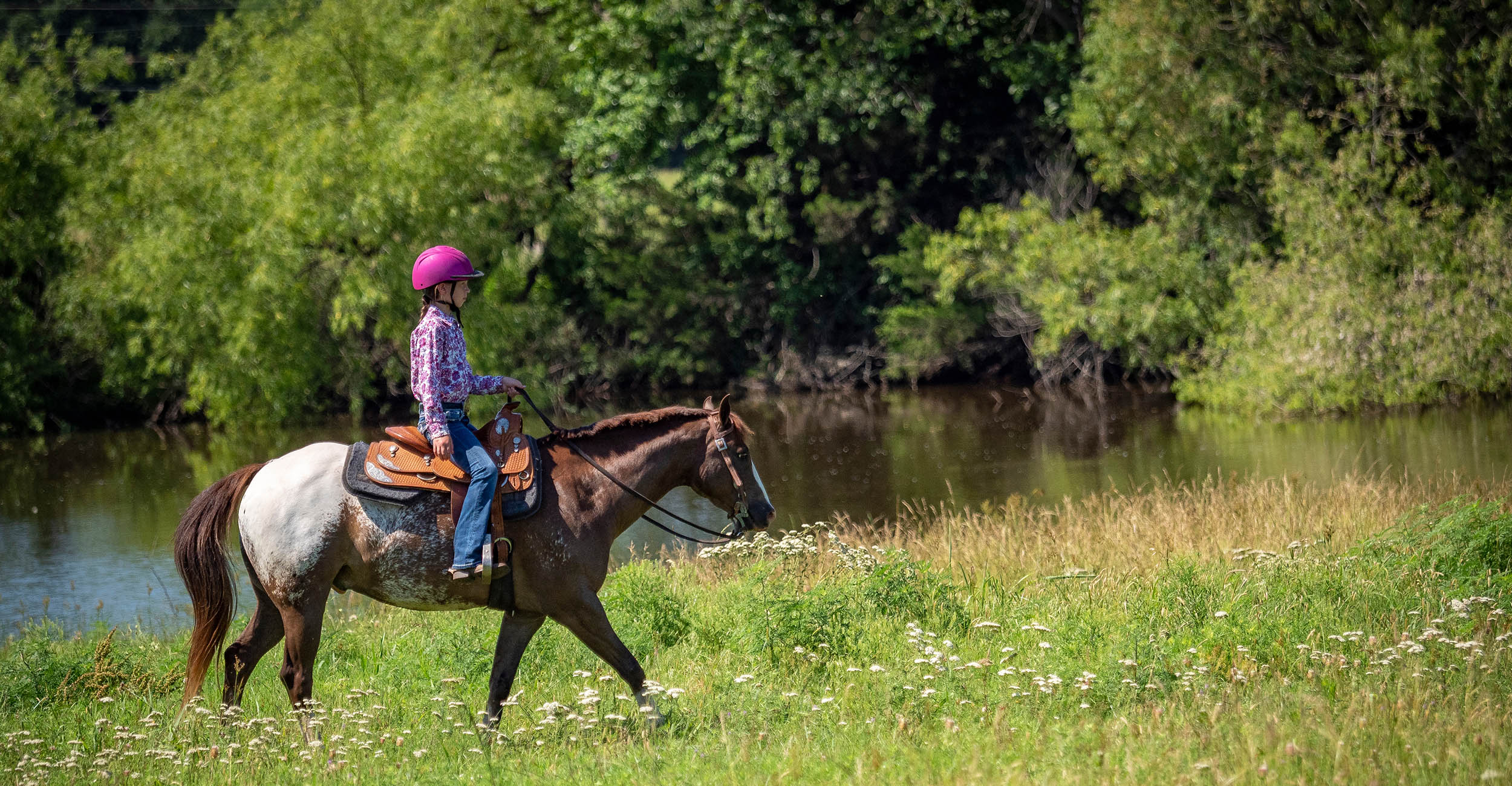
Equine herpes a growing concern this show season
Thursday, May 4, 2023
Media Contact: Gail Ellis | Editorial Communications Coordinator | 405-744-9152 | gail.ellis@okstate.edu
A case of equine herpes myeloencephalopathy was reported at a Tulsa horse show in April.
As exhibitors gear up for a busy show and rodeo season this summer, Oklahoma State University Extension animal health specialists advise owners to closely monitor the health of their horses and implement smart biosecurity measures to safeguard against infection.
“Equine herpes myeloencephalopathy is the neurologic form of equine herpesvirus-1, which is a very common virus within our equine population,” said Dr. Rosslyn Biggs, clinical assistant professor of veterinary clinical sciences and OSU Extension director of continuing education. “We’re particularly concerned because in most instances, there’s a 30-50% mortality rate if a horse starts exhibiting neurologic signs.”
Clinical signs of a neurologic issue could include:
- Incoordination
- Instability
- Lethargy
- Loss of tail tone and hind limb weakness
- Head tilt
- Urine dribbling
The virus can also appear in neo-natal form or abort foals in pregnant mares. The incubation period is 7-14 days after respiratory or nose-to-nose transmission. Biggs said common drinking areas and humans who handle horses may transmit the virus; it can also be carried on clothes or hands, spreading from horse to horse.
“Once we have a detection, we want to isolate and monitor those horses who came in contact with the infected horse,” she said. “At a very minimum, take their temperature twice a day and look for any signs of fever. Neither ill nor exposed horses should travel.”
When attending a show, exhibitors and horse owners should practice careful biosecurity and only use stalls that have been disinfected. A 1:10 ratio of bleach to water mixture is effective for spraying down stalls. If symptoms appear in a horse, isolate the animal, determine with a veterinarian’s assistance if the condition is contagious and notify show management immediately.
“In Oklahoma, it’s required that any equine neurologic case be reported to the Oklahoma Department of Agriculture,” Biggs said. “ODAFF has funds to do free testing on horses that are neurologic to determine the potential cause. It’s a concern for the equine industry in Oklahoma and nationwide.”
Biggs discusses equine herpes myeloencephalopathy on a Vet Scripts segment of SUNUP, the production agriculture television show of OSU Extension. SUNUP airs Saturdays at 7:30 a.m. and Sundays at 6 a.m. on OETA.
